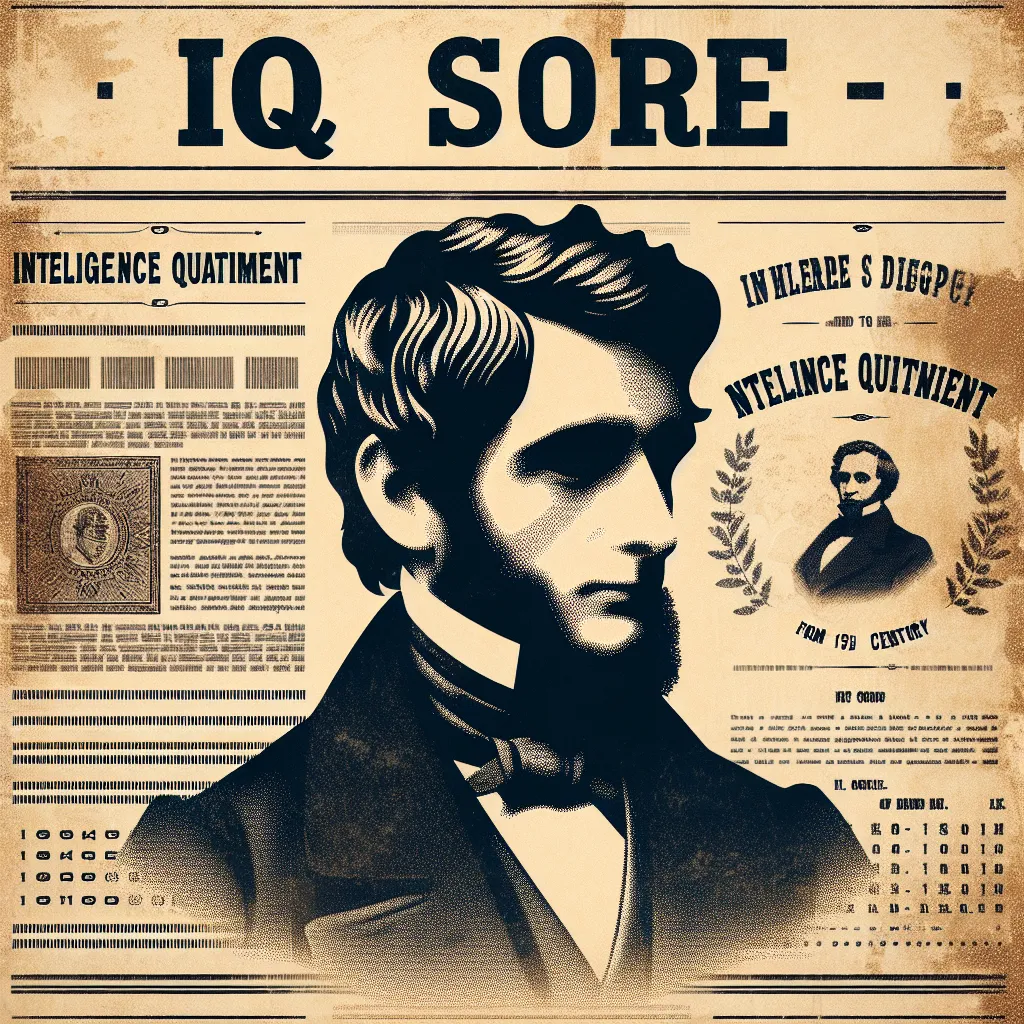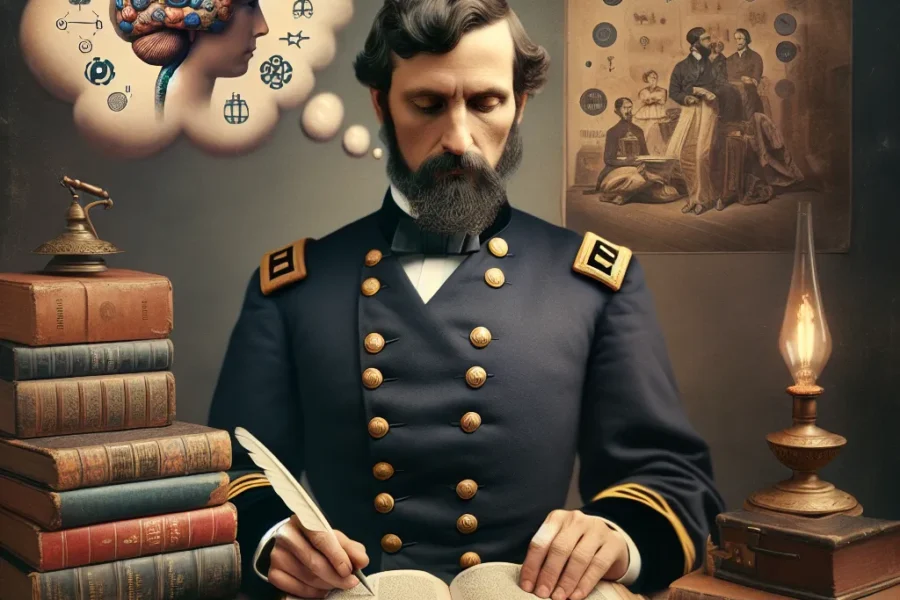The 17th President of the United States, Andrew Johnson, served a pivotal role during one of the most tumultuous periods in American history. Johnson’s path to the presidency, as well as his controversial tenure in the White House, has been the subject of extensive historical scrutiny. One of the many aspects of his persona that often attracts curiosity is his intelligence. People frequently ask, “What was Andrew Johnson’s IQ score?” However, answering this question is far from straightforward, given the historical context and methodological challenges.
If you are looking for legitimate IQ Tests which pass the entry bar for Mensa, see our IQ Tests.
To comprehensively delve into this subject, it’s crucial to understand what we mean by IQ, or Intelligence Quotient. The concept of IQ is a relatively modern construct that was developed in the early 20th century. Alfred Binet and Théodore Simon originally formulated the IQ test to identify students in need of additional academic support. Since these tests did not exist during Johnson’s lifetime, we can only speculate about his intelligence through indirect means.
Andrew Johnson was born in Raleigh, North Carolina, on December 29, 1808, into abject poverty. His father Jacob Johnson was a laborer who died when Andrew was just three years old. His mother worked as a seamstress to support her family. Johnson did not have formal education during his childhood; instead, he apprenticed as a tailor. In a period when education was a luxury, Johnson’s lack of formal schooling didn’t necessarily equate to a lack of intelligence or capability.
Despite these early hardships, Johnson exhibited traits commonly associated with high intelligence. He taught himself to read and write, and his political career began as an alderman in Greeneville, Tennessee. His remarkable rise in politics, becoming Mayor, then a member of both the House of Representatives and Senate, and finally the Vice Presidency, required significant cunning, strategic thinking, and oratory skills—all indicators of substantial intellectual aptitude.
Johnson’s most contentious and pivotal role came after Abraham Lincoln’s assassination. As the freshly inaugurated 17th President of the United States, Johnson inherited the massive task of Reconstruction. His approach to this responsibility immediately raised eyebrows. To measure Johnson’s intelligence based on his actions and policies during this period is both subjective and complex.
His push for a lenient reconstruction plan, his vetoes of civil rights legislation, and his clashes with Radical Republicans may be interpreted in various ways. One could argue that these decisions demonstrated political naivete or even stubbornness. Conversely, others might see these moves as calculated maneuvers, albeit ones that backfired dramatically, culminating in his historic impeachment—though he was acquitted by a single Senate vote.
A significant portion of the debate surrounding Johnson’s intelligence relates to his oratory skills and general knowledge. Johnson was known for his fiery speeches and had an uncanny ability to engage with his constituents. At the same time, he had a notorious temper and was known to make impromptu remarks that often got him into trouble. Some historians consider his public speaking abilities both a strength and a weakness, a double-edged sword.
Another way to gauge Johnson’s intelligence is by examining his policy decisions and their long-term impact. His unwavering belief in states’ rights and limited federal intervention was rooted in his interpretation of the Constitution. While this approach resonated with many Southerners, it alienated other significant factions, including the Radical Republicans who favored a more aggressive Reconstruction plan. This ideological conviction, in some respects, shows a deeply principled yet rigid mindset.
The education level of many of Johnson’s contemporaries was also variable, and aptitude for governance and leadership didn’t necessarily correlate with formal education. Thomas Jefferson was a polymath and a scholar, while another founding father, Benjamin Franklin, had limited formal education but was a prolific inventor and statesman. By these historical standards, Johnson’s achievements may reflect considerable natural intelligence rather than formal training.
Given the complexities of historical judgment, numerous historians and scholars have attempted to retroactively estimate IQ scores for past world leaders. These conjectures are built on the basis of written records, speeches, legislative accomplishments, personal letters, and even the recollections of contemporaries. However, it’s important to stress that these estimates are inherently speculative. As such, any attempt to assign Andrew Johnson a specific IQ score falls into the realm of educated guesswork rather than empirical science.
It’s equally fascinating to consider how Johnson might have performed on a modern IQ test. Standard IQ tests such as the Stanford-Binet and Wechsler Adult Intelligence Scale assess a range of cognitive abilities—including memory, problem-solving skills, and abstract reasoning. Johnson’s self-driven learning, political adaptability, and survival in a complex and unforgiving environment suggest he might have scored quite well, particularly in areas requiring verbal acumen and critical thinking.
Post-presidency, Johnson’s political career was marked by something of a redemption arc. He returned to Tennessee, where he was elected to the Senate, the only former president to achieve such a feat. This resilience and ability to bounce back into public favor also point to a level of strategic intelligence and tenacity.
In the end, assessing Andrew Johnson’s IQ is more an exercise in interpreting historical evidence than in arriving at a precise figure. Context matters immensely. His actions and policies must be weighed against the backdrop of the times in which he lived, a period fraught with national division, social upheaval, and political strife. While it may be tempting to distill Johnson’s intelligence into a single number, such a reduction would inevitably overlook the myriad factors that shaped his presidency and legacy.
In conclusion, while we can’t definitively state Andrew Johnson’s IQ score, his life story and career provide ample evidence of a complex intellect. Whether through his self-education, his ascent in politics, or his contentious presidential tenure, Johnson demonstrated a range of cognitive abilities that suggest a considerable degree of intelligence. Historically, intelligence is not merely a score but a combination of diverse skills and aptitudes that interact with the context in which a person lives. Therefore, while Johnson’s exact IQ remains a tantalizing mystery, his legacy speaks volumes about the multifaceted nature of intelligence.



Leave a Comment